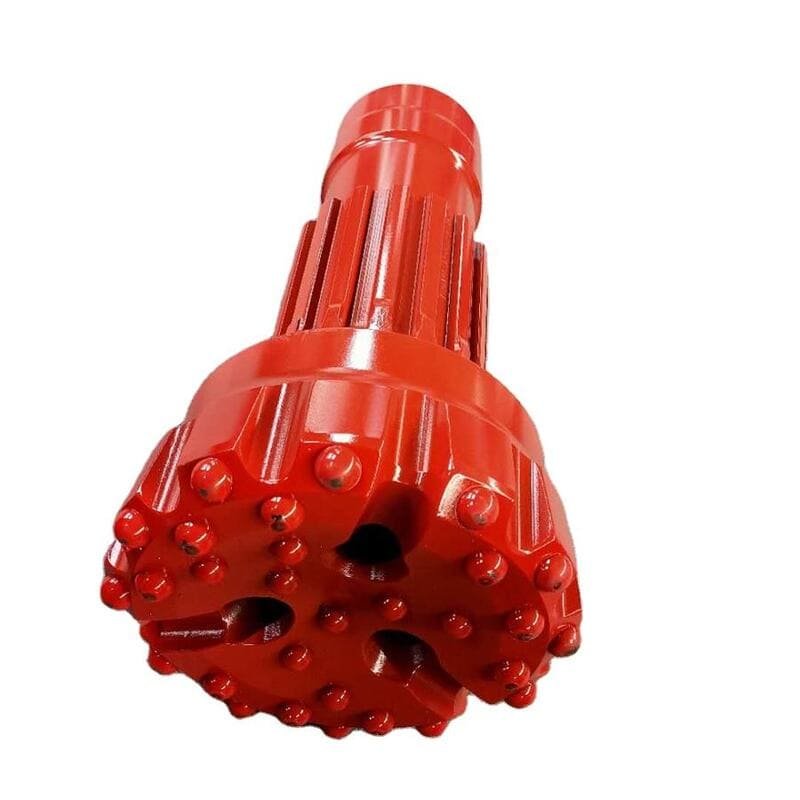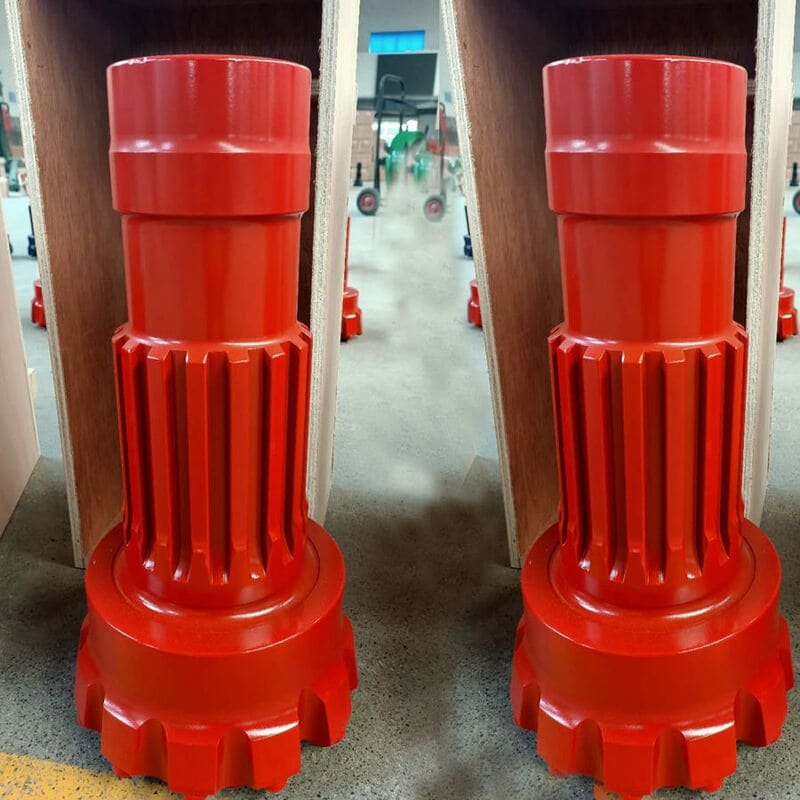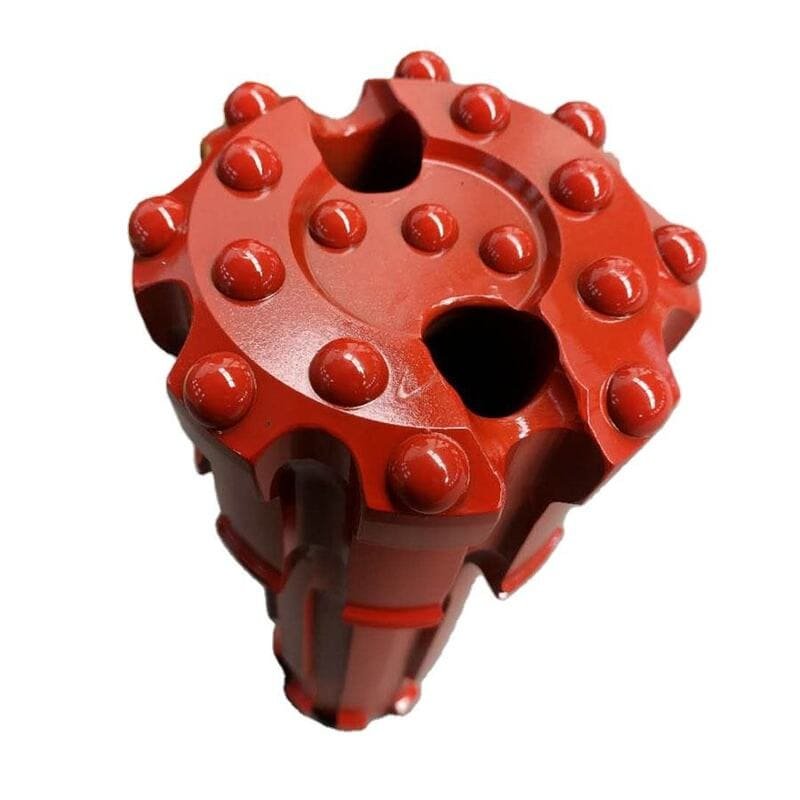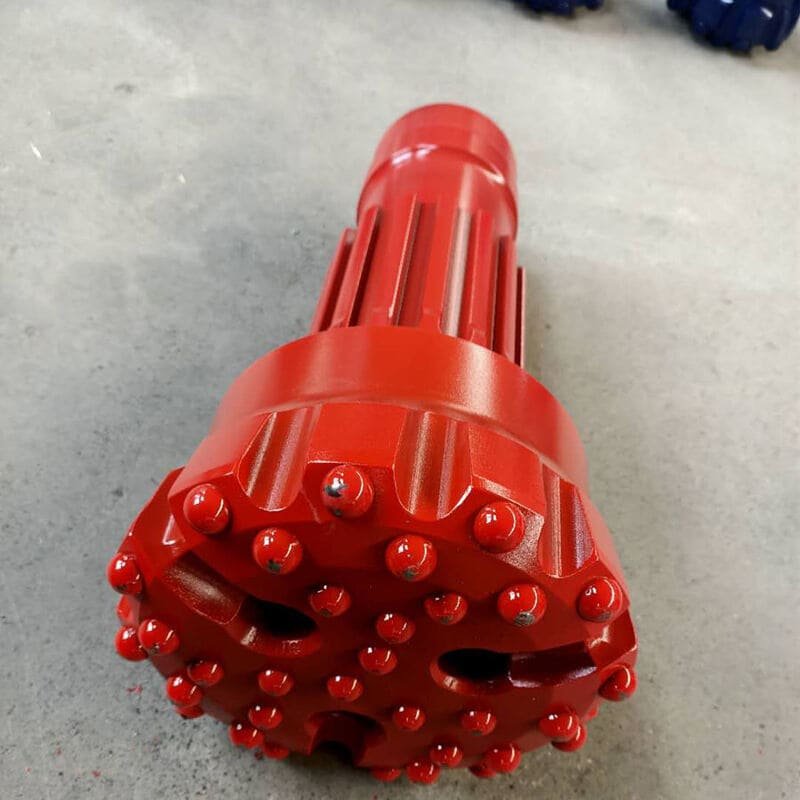Have you ever wondered how those tiny anti-corrosion agents can make a big difference in drilling?
Anti-corrosion agents can be a double-edged sword for DTH drill bits. They protect against wear and extend life but can also attract contaminants or dull sharpness if mismanaged.
Once, during a project in a particularly humid area, I learned firsthand the importance of using the right anti-corrosion agents on our DTH drill bits. Initially, everything seemed fine—our bits were lasting longer and maintenance was down. But then, we started noticing a drop in performance. That's when it hit me; the agents were attracting debris and dulling our bits! Understanding their dual nature was crucial. By choosing the right agents and applying them correctly, I found that we could harness their protective benefits without compromising on performance. It's all about balance and attention to detail.
Anti-corrosion agents extend the life of DTH drill bits.True
These agents protect against wear and tear, prolonging bit lifespan.
Improper use of anti-corrosion agents sharpens DTH drill bits.False
Improper use may dull bits due to contaminant attraction, not sharpen them.
What Are the Positive Effects of Using Anti-Corrosion Agents on DTH Drill Bits?
Ever wondered why some drill bits seem to last forever while others wear out in no time?
Anti-corrosion agents are like the unsung heroes for DTH drill bits, shielding them from wear and tear, prolonging their life, and slashing maintenance needs. This ultimately boosts drilling efficiency and cuts costs.

Enhancing Structural Integrity
I remember the first time I realized just how crucial it was to keep my equipment in top shape. With anti-corrosion agents, DTH drill bits1 stay robust by warding off rust and degradation. This keeps the cutting edges sharp and the bit's geometry intact, ensuring peak performance.
Extending Bit Lifespan
Imagine having your favorite tool break down way too soon—that’s corrosion for you. But with anti-corrosion agents, these bits enjoy an extended lifespan, often outlasting their expected service period. This longevity not only saves money but also reduces the headache of frequent replacements. You might want to check out common corrosion challenges2 if you're curious about how these challenges affect industrial tools.
Reducing Maintenance Requirements
Thanks to these agents, the maintenance schedule for my DTH drill bits isn't as packed as it used to be. Less frequent maintenance means less downtime and fewer disruptions, allowing me to focus on what truly matters. For those who want to dive deeper, exploring maintenance strategies3 that incorporate anti-corrosion practices can be enlightening.
Practical Application: A Brief Table Overview
| Benefit | Description |
|---|---|
| Wear Protection | Keeps cutting edges sharp and geometry intact |
| Lifespan Extension | Prevents premature failure, ensuring longer use |
| Maintenance Reduction | Decreases frequency and extent of necessary maintenance |
Best Practices for Anti-Corrosion Application
The difference between "just okay" and "wow" results often lies in how these agents are applied. Choosing the right agents for specific environments, applying them as per guidelines, and regular inspections can really enhance the operational efficiency of DTH drill systems4. I find learning through industry case studies5 particularly useful in understanding these techniques better.
Anti-corrosion agents extend DTH drill bit lifespan.True
They prevent rust and degradation, prolonging tool life.
Using anti-corrosion agents increases maintenance frequency.False
They reduce maintenance needs by preventing damage.
How Can Anti-Corrosion Agents Negatively Affect Drill Bit Performance?
Picture this: You're on a drilling site, thinking everything's under control, and then a tiny agent meant to protect becomes the culprit behind unexpected hiccups.
Anti-corrosion agents can negatively impact drill bit performance by causing contamination, dulling sharpness, and interfering with cooling systems. Choosing the right products and applying them correctly can help minimize these issues.

Contamination Concerns
I've been there, standing in a cloud of dust, wondering why things aren't running as smoothly as they should. It turns out those trusty anti-corrosion agents sometimes include oils or waxes that love to play magnet with dirt and debris. And in a dusty environment, this means trouble. Clogging in the bit's waterways and air channels isn't just a theory—it's a reality that can slow down efficiency and even cause overheating. Keeping an eye on contamination6 is key.
Impact on Sharpness
Ever tried slicing through a tough steak with a dull knife? That's what it feels like when some anti-corrosion coatings thicken up and dull the bit's edge. In hard rock drilling, where precision is non-negotiable, this can be downright frustrating. I quickly learned that ensuring these agents don't leave heavy residues is crucial to maintaining sharpness.
| Agent Type | Potential Effect | Suggested Action |
|---|---|---|
| Heavy Waxes | Dulls sharpness | Use sparingly |
| Thick Greases | Impedes impact | Clean before use |
Residue Build-Up
I remember the first time I dealt with residue build-up; it was like an unwanted guest that wouldn't leave. High drilling temperatures can cause certain agents to leave residues, altering friction and affecting the bit's mechanical action. Over time, this builds up and the bit’s effectiveness dwindles. Regular maintenance became my go-to solution.
Cooling and Flushing Interference
Cooling and flushing aren’t just terms—they’re lifelines for a drill bit's longevity. But some protective coatings just don't get it; they block fluid flow, leading to overheating. When I realized this, selecting the right anti-corrosion products7 became top priority.
Regular inspections are now part of my routine—catching issues early means fewer headaches later and better drill bit performance in the long run.
Anti-corrosion agents attract dirt in dusty environments.True
Oils and waxes in agents attract debris, clogging waterways.
Thick anti-corrosion coatings enhance drill bit sharpness.False
Thick coatings can dull the bit, reducing effectiveness in hard rock.
How Can I Mitigate the Negative Impacts of Anti-Corrosion Agents?
Ever wondered how to keep your industrial equipment running smoothly without the hiccups that anti-corrosion agents might cause? Let's dive into some practical strategies!
To mitigate the negative impacts of anti-corrosion agents, choose agents wisely based on your conditions, ensure proper application, thoroughly clean equipment before use, and perform regular inspections to manage residue build-up.

Choose the Right Anti-Corrosion Agent
I remember once picking up a batch of anti-corrosion agents for a project, only to find out later that they weren't suitable for the dusty conditions we were dealing with. After much trial and error—and a few lessons learned—I realized the importance of choosing the right agent. Depending on where you're working, lighter oils or spray coatings8 can be life-savers, helping reduce contamination and clogging.
Proper Application Techniques
I'll admit, I've been guilty of skimming through instructions more than once. But when it comes to applying anti-corrosion agents, following the manufacturer's guidelines is non-negotiable. The difference in results is night and day. Precise application helps keep tools sharp and cooling mechanisms running without a hitch, something I've come to appreciate after a few close calls.
| Application Tips | Impact |
|---|---|
| Follow guidelines | Reduced residue build-up |
| Use appropriate tools | Improved coverage |
Thorough Cleaning Before Use
One thing I've learned the hard way is not to skip on cleaning equipment thoroughly before use—especially if it's been sitting with protective coatings for a while. I once neglected this step and ended up with dulled drill bits mid-operation. Ensuring your tools are residue-free maintains their penetration efficiency9 and saves you from unnecessary downtime.
Regular Inspections and Maintenance
Routine inspections have become a staple in my maintenance schedule. They're not just about spotting issues but also about adjusting how we use anti-corrosion agents based on what we find. This proactive step keeps everything running smoothly and prevents unexpected performance drops.
Monitoring and Feedback
Lastly, setting up a monitoring system was a game-changer for me. By keeping track of how our anti-corrosion strategies are faring and gathering feedback from the team, I can tweak practices as needed. It's all about prolonging equipment life and cutting down on those pesky maintenance costs.
Lighter oils are ideal for dusty environments.True
Lighter oils reduce contamination risk in dusty settings.
Regular inspections increase maintenance costs.False
Inspections help identify issues early, reducing costs.
Conclusion
Anti-corrosion agents enhance DTH drill bits by preventing wear and extending lifespan, but improper use can attract contaminants and dull sharpness, impacting overall performance.
-
Learn how anti-corrosion agents protect drill bits from rust and degradation. ↩
-
Understand the types of corrosion challenges faced by tools in industrial settings. ↩
-
Explore maintenance strategies that incorporate anti-corrosion practices. ↩
-
Discover how to maintain DTH drill systems effectively. ↩
-
Gain insights from case studies on effective anti-corrosion practices. ↩
-
Understanding contamination impacts helps manage drilling efficiency and prevent equipment damage. ↩
-
Choosing the right anti-corrosion products ensures optimal performance and longevity of drill bits. ↩
-
Spray coatings provide an even layer that minimizes contamination risks in dusty environments. ↩
-
Cleaning prevents residues from dulling bits, preserving their penetration efficiency. ↩








